Laghoo is pleased to launch “The Writer and the Taboo”; a series of interviews with Arab writers and intellectuals concerning writing about taboos and controversial themes in Arabic culture.
For this issue (April, 2015), the Palestinian poet and novelist Maya Abu Alhayyat was interviewed. Maya’s work covers different artistic genres including poetry, fiction, and cinema/TV. She also runs creative writing workshops in Ramallah and other Palestinian cities. She was born in 1980 in Lebanon. In 2005 she was awarded the Young Creative Writer Award by the Palestinian Ministry of Culture, followed in 2006 with the Young Writer Award for Poetry from the A. M. Qattan Foundation. Her novel “No One Knows his Blood Type” was published by Dar Al-Adaab in 2013.
Do you think writing about taboos is a necessary thing?
Writing is not considered as such if it does not cause outrage to modesty; it is tapotement, and I do not prefer this kind of literature. Nor does this mean insolence and provocation for the act of provocation in itself. It’s about stripping appearances, superficialities, traditions, the inherited, and the agreed upon, because all these postulates marginalize the marginalized about whom and for whom I am personally interested in writing.
Is there a specific controversial subject you prefer to write about?
There is no preference in writing. Everything can be written about, but with the spirit and style that distinguishes a writer from another.
In your opinion, is there a controversial subject one should not or must not express or write about?
No, there isn’t any.
Do you think about the reader or the audience when you are writing?
I think after the text is published, not during the writing. And this obsession stays with me for a long time.
Do you support censorship on art and writing?
Certainly not. Any kind of censorship, even if it’s the authority of the family, is a blow to the work because the writer will be writing with a prior thinking about this matter.
How do you balance the real and the metaphorical in your writing, and do you feel that sometimes you betray your idea because of the indirect writing?
I abandoned the metaphorical in my writing a while ago. Now I betray the metaphorical with the real and direct, and I am so happy although it is frightening, and with it you always stand on the edge between writing a plain text and writing the real, the amazing daily, the new, and the revealing.
In terms of priority in cultural influence, how do you classify the following controversial themes: religion, politics, and woman/gender?
I think politics controls writing in Arabic, and then woman and religion, but this does not mean that this is a priority for real cultural impact. I think that writing about religion, despite its perilousness, is the basis for the liberation of the Arab mind, because the exploitation of religion is the boogeyman that haunts women and the marginalized while protecting politicians and beneficiaries. It also maintains stability among a large segment of the poor and less fortunate in terms of education and culture.
Have you been subject to criticism or terrorism because you tackled controversial topics in your works?
I faced a great deal of family pressures that reached breaking point because of my last novel. In reality I am cowardly, but I am bold in what I write, and this greatly affects my mental state, and maybe for this reason I feel very fearful starting a new novelistic work.
Can the controversial and the sacred possibly coexist in the Arab world?
The sacred cannot be disputed, and for this reason all our debates are for the debate itself, not for effecting changes or making differences. But I am hopeful with the young men and women who read books quietly and without clamor away from all the chants of the intellectual men and women.
Translated from Arabic by Ghada Mourad
From Maya’s Work : He Asks Me About Love

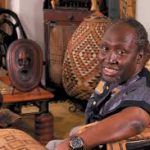
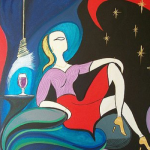

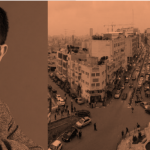
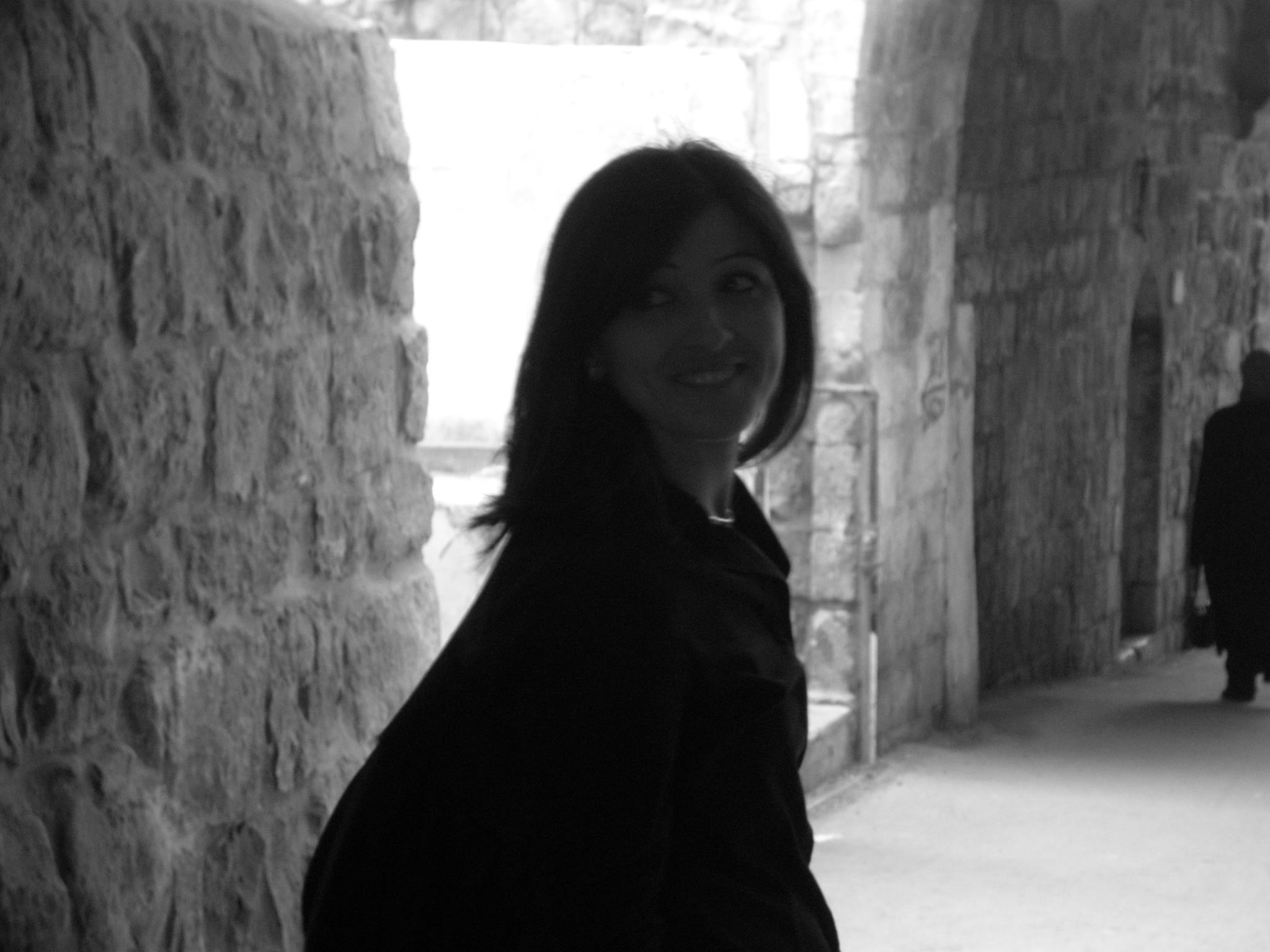
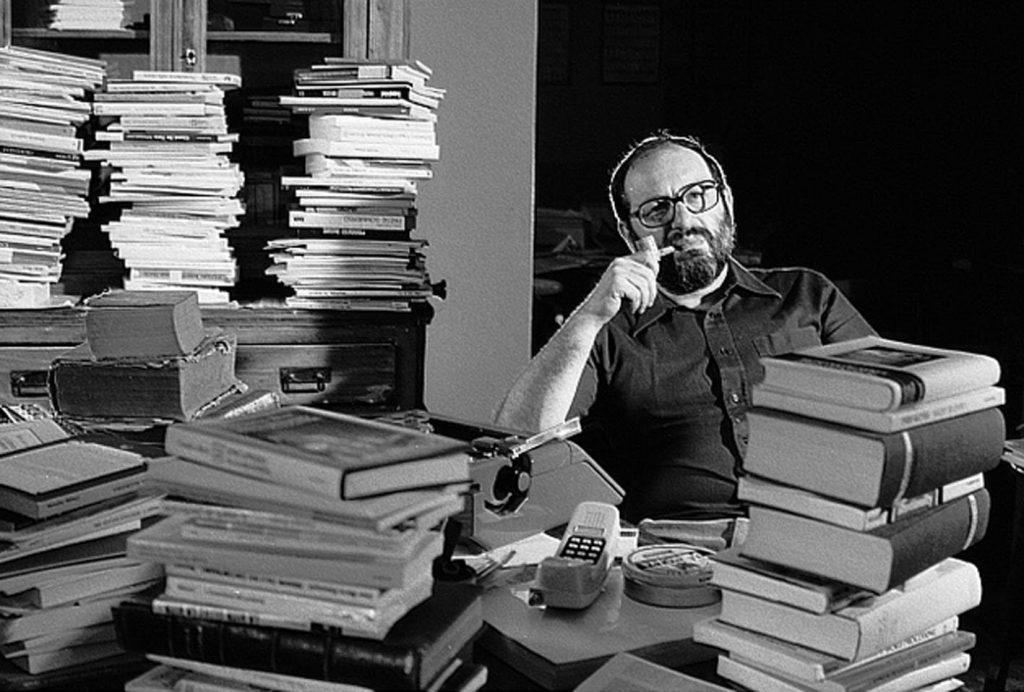
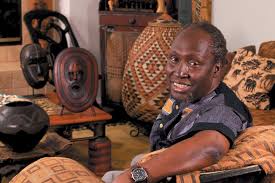
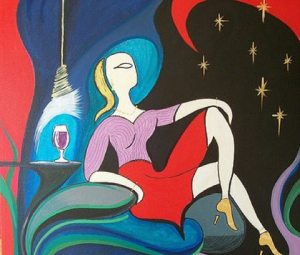

The Writer and the Taboo: with Naser Al Zafiri
The Writer and the Taboo: with Raji Bathish
The Writer and the Taboo: with Liwaa Yazji